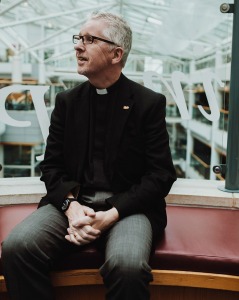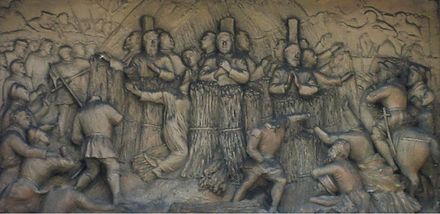Mark 3.22-30
Jesus was an unsettling figure. This is something evident from the gospel accounts where, in so many instances, people were either for or against Jesus. Generally speaking, those pushed to the margins of society – the little people, as it were – were the ones who were drawn to Jesus. In contrast, the powerful, the self-sufficient, and the religious elite, saw Jesus as a threat to the status quo.
In this gospel reading, the reputation of Jesus had resulted in opposition arriving from Jerusalem. The scribes, we are told, attempted to discredit Jesus through what would prove to be an absurd accusation. Put simply, their argument was that Jesus was healing people, and casting out demons, not by the power of God but by the power of the devil.
Jesus responded, and we can almost imagine him rolling his eyes at the ridiculous logic of the scribes’ argument, by telling them how a house divided against itself cannot stand. Jesus could not be doing good works at the behest of the devil any more than the devil could do evil things at the behest of God. This was nonsense, and served only to expose the agenda of Jesus’ opponents which was to protect their vested interests by tarnishing the reputation of Jesus.
Jesus then concludes this episode by reminding his audience of the abundant forgiveness on offer from God for all who seek to avail themselves of it, with the caveat that blasphemy against the Holy Spirit is unforgiveable. This was aimed at those who had just accused Jesus of having an unclean spirit. The problem for them was not that God was turning his back on them but, rather, the opposite.
In Jesus, God was in their very midst, but their self-righteousness prevented them from seeing Jesus for who he was. Even worse, they deemed the works of God’s Holy Spirit to be the works of the devil, thereby cutting off the flow of God’s grace into their lives. Their eyes, ears, and hearts were closed off from God’s forgiveness, and that is why their sin was unforgiveable. They would need a change of heart.
Perhaps this is a cautionary tale for all of us, not that we are hostile to Jesus in the same way as the scribes in this story were. However, there may be times in life when anger, prejudice, bitterness, or an unwillingness to forgive someone who has wronged us stems the flow of God’s love in and through our lives, like a blockage in a stream. So, let’s be careful out there. God’s forgiveness will never be withheld, though never forced upon us. But we do need to ask.

